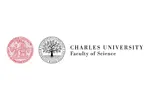

Czech Republic (the)
Visit course webpageProject summary
Radial growth of woody plants is a vital process that controls carbon sequestration and significantly contributes to climate change mitigation. In regions with seasonality of climate, wood formation occurs episodically during periods with favorable conditions for cell division and expansion. Temperature and moisture interact during the growing season to determine (i) whether growth can be sustained, and if so, (ii) what speed radial growth can achieve at a given moment. However, we lack information about how growing season duration, occurrence of daily growth events, and growth rate during these events interact in determining the overall annual growth rate and how their importance changes across spatial gradients.
The Ph.D. candidate will take part in a project funded by the Czech Science Foundation (GACR) that aims to address the variation in the importance of growth rate, growth occurrence, and growing season duration for annual tree growth across geographical gradients and over time. The candidate will establish new plots of intensive dendrometer monitoring in dry, moderate, and cold coniferous forests across the Czech Republic to extend the already existing network of monitoring sites run by our team. Dendrometers are used to record fine stem size (radius or circumference) variation driven by radial growth and changing amount and state of internal stem water content. Next, the candidate will analyze the recorded data from new as well as old dendrometer plots to statistically separate the contribution of growth phenology, growth rate, and growth occurrence to total annual wood production. To do this, the candidate will employ established statistical approaches including linear and non-linear regressions and/or wavelet analysis. The variable importance of growing season duration, growth occurrence, and growth rate as predictors of total annual growth will be assessed in relation to site and climatic conditions of each stand.
About us
We are a young, growing, and highly international research team (https://web.natur.cuni.cz/physgeo/dendro/). Our research is focused on forest ecology and climatic effects on tree growth in temperate, boreal, and Mediterranean forests. We use various tree-ring proxies (tree-ring width, wood density/blue intensity, wood anatomy, isotopes) and other data sources (forestry databases, satellite imagery, dendrometers). Our dendrolab features state-of-the-art infrastructure (scanners, microtomes, microscopes, software). Currently, we maintain dendrometer plots for monitoring of intra-annual growth dynamics in the Czech Republic (5x), Southern Norway (2x), Pyrenees (2x), and Northern Sweden (1x).
Your profile
You hold an M.Sc. degree (or equivalent) in Geography, Ecology, Biology, Forestry, Plant (Eco)physiology, or a related discipline. We are looking for a highly motivated candidate with a strong scientific interest in plastic responses of trees to climate change, fieldwork, and data analysis. Previous education and/or practical experience in these areas is a strong advantage. The ability to use R or other programming language is welcome. The ideal candidate will proactively contribute to the research project with their expertise and by developing their research ideas. The candidate should be able to join fieldwork related to the installation, maintenance, and reading of dendrometer plots. A very good command of English is required (the working language of our diverse group is English).
Selected papers from our group linked to the topic of the PhD project
Tumajer, J., Scharnweber, T., Smiljanic, M., Wilmking, M., 2022. Limitation by vapour pressure deficit shapes different intra?annual growth patterns of diffuse? and ring?porous temperate broadleaves. New Phytol. 233, 2429-2441. https://doi.org/10.1111/nph.17952
Tumajer, J., Braun, S., Burger, A., Scharnweber, T., Smiljanic, M., Walthert, L., Zweifel, R., Wilmking, M., 2023. Dendrometers challenge the 'moon wood concept' by elucidating the absence of lunar cycles in tree stem radius oscillation. Sci. Rep. 13, 19904. https://doi.org/10.1038/s41598-023-47013-y
Research group
Dendroecology
Learn more about Quantifying the importance of phenology, growth rate, and growth occurrence for annual wood production, PhD - at Faculty of Science, Charles University
Visit course webpageContact Faculty of Science, Charles University to find course entry requirements.
This text facilitates quick navigation of the various types of scholarships but does not provide a full list of rules and policies regulating this field. The granting and payments of scholarships is governed primarily by the Scholarships and Bursaries Rules of Charles University (cuni.cz/UKEN-727.html), the Rules for Granting Scholarships at FSc, and the relevant measures issued by the Dean (natur.cuni.cz/fakulta/studium/bc-nmgr/predpisy-a-poplatky/stipendia; Czech only).
Students may obtain the following scholarships:
Certain scholarships are granted to students automatically (without student applications), whereas others are granted further to an application (electronic or paper, depending on the type of scholarship). Bursaries are neither taxed nor included in stated income. You can find answers to frequently asked questions regarding scholarships on the Faculty website (natur.cuni.cz/fakulta/studium/helpdesk/faq-stipendia; Czech only).
For more information check our dedicated website.
There are 136 other courses listed from Faculty of Science, Charles University. A selection of these are displayed below:
A postdoctoral position to study thermal effects in landslides Postdoc
Faculty of Science, Charles University
Find out moreActivation of STING signaling in tumors associated with human papillomaviruses PhD
Faculty of Science, Charles University
Find out moreAdvanced Electron Microscopy Techniques for the Characterization of Tunable Zeolitic Architectures PhD
Faculty of Science, Charles University
Find out moreAmphiphilic Peptidomimetics Containing Metallacarboranes as a Design Strategy for Future Antibiotics PhD
Faculty of Science, Charles University
Find out moreSee other universities in Prague
Find out more about studying in Czech Republic (the)